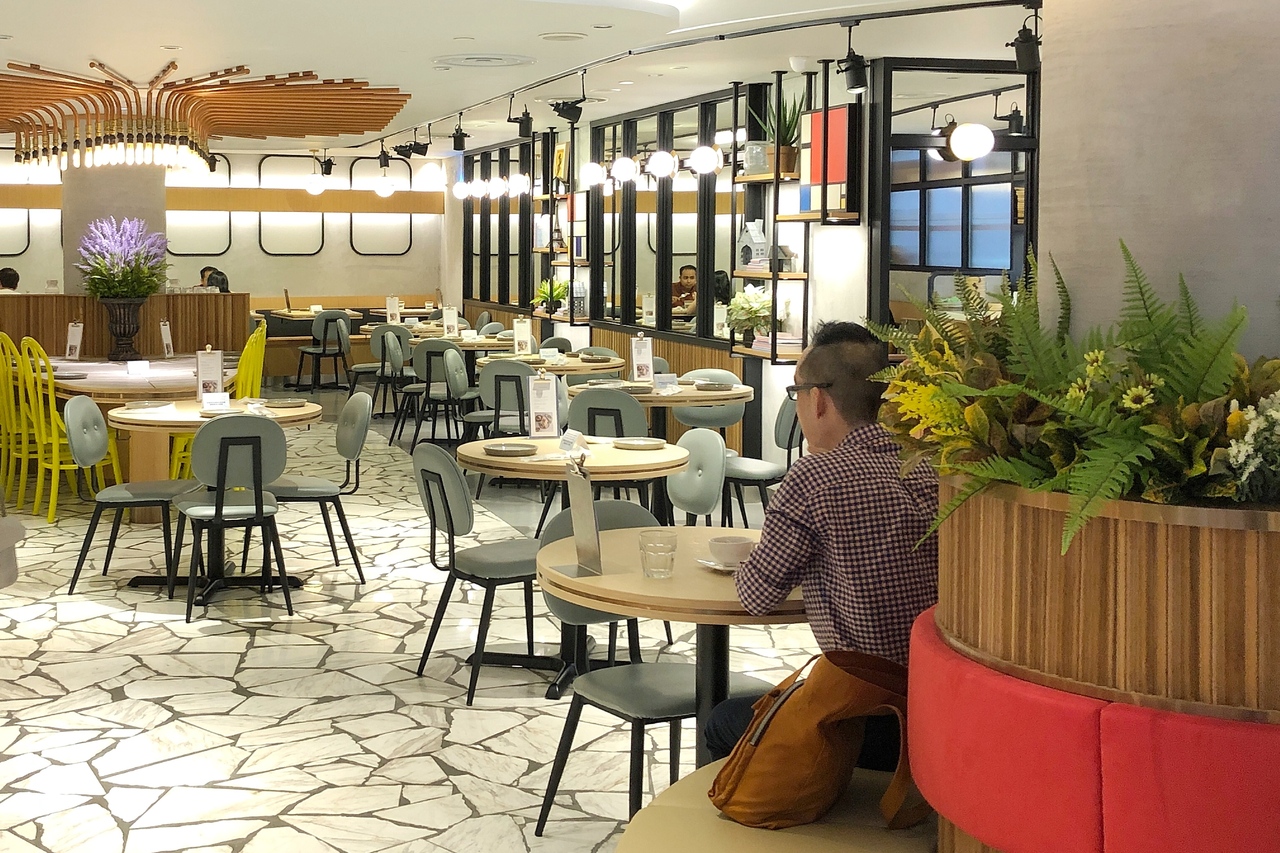Chope survey captures devastating impact of the coronavirus pandemic on F&B
Sign up now: Weekly recommendations for the best eats in town

Food and beverage contributes 0.8 per cent to Singapore's gross domestic product.
PHOTO: ST FILE
SINGAPORE - The statistics are grim: 93 per cent of restaurants have seen a dip in revenue, 78 per cent are not prepared to last longer than six months if things do not get better, 80 per cent are reducing staff to cut costs, and a third have asked full-time staff to take compulsory leave.
This is what restaurant owners here are facing, judging from a survey done by Chope, a restaurant reservations platform, of 249 dining establishments here. Chope, together with Professor Sherri Kimes, Emeritus Professor of Operations Management at the Cornell University School of Hotel Administration, and a visiting Professor of Analytics and Operations at the Business School at the National University of Singapore, have written a white paper on the impact of the coronavirus pandemic on the food and beverage scene here.
Food and beverage contributes 0.8 per cent to Singapore's Gross Domestic Product. The estimated 12,000 restaurants here employ 200,000 people, whose jobs are now in jeopardy because diners have vanished in the time of coronavirus.
By all accounts, diners were spooked when Singapore raised its coronavirus alert to Dorscon Orange on Feb 7. The scene recovered somewhat, only to be hit again the week of March 23, when the government mandated safe distancing in restaurants, and parties of more than 10 were not allowed. Bars, clubs and other entertainment venues were also told to close.
The Chope survey showed that Chinese restaurants were hardest hit, and have had a tough time recovering. The survey surmised that this could be because of the communal nature of these restaurants, especially those which specialise in hot pots. Restaurants and cafes with outdoors seating reported an increase in reservations, with people who work from home using them as mobile offices.
Reservations from tourists also fell, in line with the fall in tourism numbers.
Those who responded to the survey are asking for rental rebates and waivers from their landlords during this time. They cite the example of Jewel Changi Airport, which is offering restaurant tenants a 50 per cent reduction on gross rent, and mall owner CapitaLand, which is giving 1,000 tenants rental rebates over two months. They are also asking for more marketing programmes to bring traffic to malls, and be given flexibility to shorten opening hours.
From the government, the are asking for a suspension on foreign worker levy, more subsidies and grants, an "aggressive" job credits scheme, a bridging loan programme and an extension of training grants.
Meanwhile, restaurant owners have also implemented measures to raise revenue, with 54 per cent of survey respondents trying out time-based discounts. Some 44 per cent of respondents have tried out targeted discounts to particular groups of people or those who live or work near the restaurant.
By far the most effective method, however, was one-for-one discounts, which was implemented by 28 per cent of respondents.
Although bookings for corporate events have dried up, diners showed they were still up for eating out for special occasions. For example, Valentine's Day came a week after the alert was raised to Dorscon Orange but Chope reported that reservation numbers exceeded its year-on-year trend for the period by 31 per cent.
The least affected method for raising revenues is offering deliveries or takeouts, to diners who want to distance themselves socially, although only 41 per cent of the restaurants had tried this.
Professor Kimes, an expert in revenue management, recommends that restaurant owners stay calm and look for solutions. She suggests drawing a long-term plan to deal with a recession, and to look at the impact of the plan on customer and employee satisfaction and the long-term image of the restaurant.
Owners should also be wary of broad scale discounting because of how it can be difficult to go back to pre-crisis prices. Restaurants with loyalty programmes instead should mine their database to send targeted promotions to members and tell them about special events. Restaurants should also not cut their marketing budgets it is an essential tool to maintain current diners.
She also suggests marketing partnerships with hotels to offer staycations and working out special packages with social organisations and schools.


